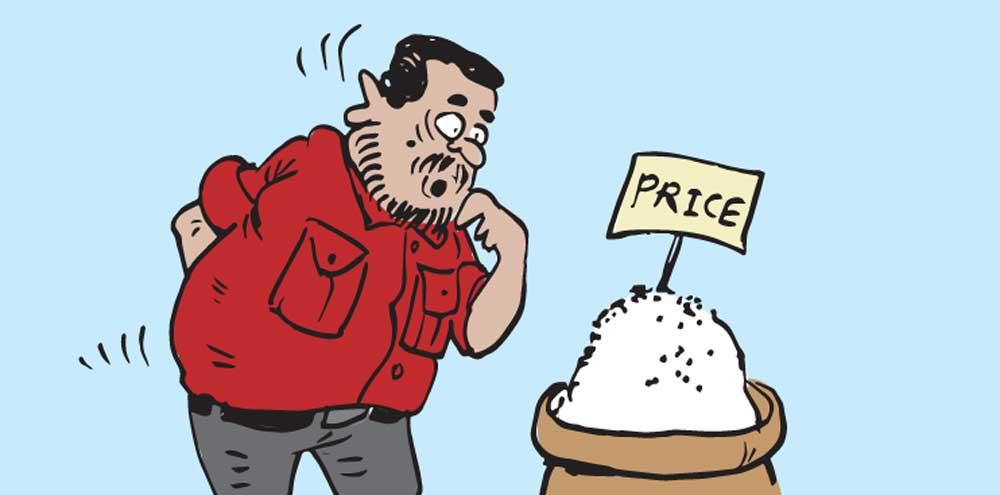11 Dec 2024 - {{hitsCtrl.values.hits}}

President Anura Kumara Dissanayake and his newly elected parliamentary team are being hit by a barrage of criticism more reminiscent of the firing of multi-barrel weapons which operated during the time of the LTTE-led war which lasted nearly 30 years. The political opposition has rounded on government for its inability to control major rice millers manipulating prices.
In Parliament, charges of government’s failure to control the interplay between supply and demand of rice, have raised a cacophony of sound. Meanwhile ordinary citizens are literally pushed to the brink of starvation given the skyrocketing prices.
All the past regimes too, have caved in to the politically powerful rice millers. It is said the group controls the purchase and distribution from paddy to the finished product -the grain of rice- which is the staple food of Lankan families. It must be mentioned however, their reach is limited to those areas of the country, South of the northern province.
Thanks to the long-drawn-out war in the North and the East of the country, the rice cartel dons were unable to extend their reach into those areas. A different system existed there. After all, even during the war, the people of the North and the East were able to manage on their own agricultural production plus the limited government supplies which reached the population there.
Outside areas in the North and the East, it is the big-time rice millers who control the marketing of paddy and rice. They also provide loans to small and tenant farmers. Many of these unfortunates are unable to provide collateral needed to avail themselves of government or bank loans.
At harvest time, it is the agents of big-time millers, many of whom operate smaller mills who set prices -mostly well below market rates. Interest repayments on loans leave the primary producer -the farmer- with a pittance on which he is barely able to survive.
The three to four large rice mill owners purchase stocks of rice from smaller millers at prices also set by them (large millers) and the grain is uploaded to their go-downs and thence to whole sale, retail and market chains at prices set by the self-same large rice millers.
They have now become a law unto themselves. To make matters worse, the ‘Weather Gods’ too have not been kind to the new government. Since elections the country has been hit by adverse weather, which devastated crops, pauperised the agricultural community and led to steep increases in the selling price of rice.
According to the president, the government has provided soft loans for bulk purchase of rice. But the benefit has not been passed on to the consumer. As mentioned earlier, government’s benevolence has not percolated to the primary producer either.
Scurrilous musings charge government’s inability to act against the mafia, stems from the government having accepted campaign donations. This is a common practice in democracies the world over. But was not expected of the new leaders who campaigned on an anti-corruption platform at the recently concluded elections.
If it is so, thereby hangs a tale. Perhaps believing quiet charm would solve the problem, the president appealed to rice millers to release stocks and ease shortages in the market. It did not work.
And so it was, two days ago President AKD called for the rice market to be regulated. He brought in a system of price controls. Before the ink on his diktat had dried a hue and cry had started with numerous interests crying foul.
Price controls in our country have seldom worked. Older Lankans remember the term of Ms. Sirimavo Bandaranaike in horror. In the not too distant past President Chandrika Kumaratunge attempted to use price control to bring down the cost of bread. That move only worsened the situation.
But at a time when particular cartels control vital sections of the food chain, control supply and dictate prices it leaves both producers and consumers at the mercy of a few who thrive off the flesh and blood of the average citizen.
Then it becomes necessary to level the field. This is the government’s duty. The government’s role is to ensure that no player can manipulate the market at the expense of the majority.
22 Dec 2024 1 hours ago
22 Dec 2024 1 hours ago
22 Dec 2024 4 hours ago
22 Dec 2024 4 hours ago
21 Dec 2024 21 Dec 2024